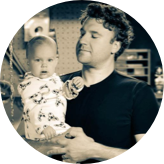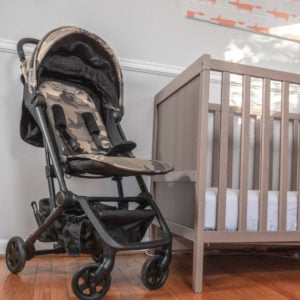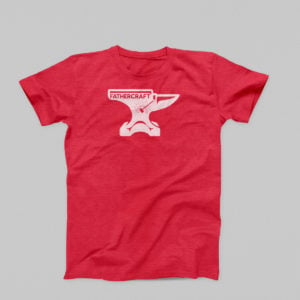Preparing for your new baby, especially if it’s your first time, can feel daunting.
And, to some extent, the overwhelm isn’t unwarranted.
It’s a big task. But the good news is, if you’re reading this, you’re planning ahead and thinking about what to do to prepare for a baby ahead of time—something that’s going to make your life a whole lot easier as the big day comes.
Let’s be clear, this is not a list of 8 random things you need to do, this is a comprehensive guide that allows you to dig deep on baby preparations. We’re going to cover (click a link to skip ahead):
- When to start preparing for your baby’s arrival
- A baby preparation timeline
- Things to do while waiting for your baby’s arrival
- Figure out your parenting education plan
- How to prepare for a baby financially
- What to buy before the baby arrives
- Finally, we’ll help you keep things organized with our comprehensive preparing for baby checklist
- Bonus: selecting a pediatrician—a video guide
When to start preparing for your baby’s arrival
Often, expecting parents fall into one of two camps; they either jump in and start preparing as soon as they get pregnant (find an adoption agency, line up a surrogate, etc.), or they think, “9 months is a long time” and put off preparations for their future self to handle. As with most things, preparation for a new baby is usually best started somewhere in the middle. Don’t put your future self in a tough spot, we hear they’re a good person and they don’t deserve that. But, waiting to do major preparations until after the first trimester can be a good idea to ensure all is well with the pregnancy.
There are a few things that are a good idea to start early, which we’ll cover next:
A baby preparation timeline
As soon as you or your partner (or surrogate, or adoptive mom) realizes she’s pregnant
Call the OB and set up your first appointment. The OBGYN will let you know when what they recommend in terms of first visit, visit frequency, and more.
Follow pregnancy health guidelines. We probably don’t need to go over the basics with you, but experts advise avoiding alcohol, tobacco, and excess caffeine, along with some ones you might not know about like deli meat, some seafood, hot tubs & saunas, herbal teas, and more. And, be sure to check with your doctor about any medications and supplements during pregnancy. More here from the Mayo Clinic.
Read up on pregnancy. Even if you’re not the one who’s pregnant, it pays to get educated. There are great resources at The May Clinic’s website and the American Academy of Pediatrics’ site. Or, check out our comprehensive guide to pregnancy geared to dads.
After the first trimester
Start telling people you’re having a baby. Most couples choose to start telling people the big news after the first trimester, when pregnancy risk is lower and you or your partner will be more obviously pregnancy.
Start to research daycare. Some daycares have waiting lists that are months (and months) long. So, even if you’re not sending your baby to daycare right away, it may be time to consider and research options, otherwise you may find yourself ready for daycare but not have one (or one you like) available.
Start to research what to buy. There’s some gear you’ll want before the baby is born. Don’t worry, we’ve got a whole section on that below, keep reading.
By the start of the 3rd trimester
Find a pediatrician. You’ll want to have your pediatrician lined up before the baby’s birth. You’ll also want to interview this person to make sure you like him or her.
Decide on your birth plan and hospital for delivery. Having a plan in place & knowing where you’ll deliver is essential. Most hospitals offer tours, which are great if you have a choice of where to deliver, or to get a lay of the land even if you don’t. You’ll also want to ensure this hospital takes your insurance, and many times you can fill out paperwork ahead of time so you don’t have to do that while you or your partner is in labor.
3+ weeks from due date
Get your hospital bags together. You’ll want some essentials. You’ll want them ready to go, like a secret agent grab bag.
Create a gameplan. What are you doing with the dog? How will you get to the hospital?
Consider freezing some meals. Time is not going to be your friend when the new baby comes. Neither is energy for cooking. A few weeks of meals in the freezer can be a lifesaver.
Things to do before the baby arrives — a checklist for expecting parents
Ok, let’s dive into the the bulk of your baby prep assignment—things to do before the baby comes. We’re breaking this down into a few key categories: paperwork, insurance & administrative, discussions to have with your partner, and preparing your house and nursery.
Baby preparation paperwork, insurance, and another administrative stuff
There are a few key administrative things you’ll want to add to your to do list to have in place before your baby arrives.
Health Insurance
You’ll want to check in with your health insurance provider to understand the procedure and cost for adding a baby to your plan. If you and your partner both work and have a health insurance plan available through work, it’s a good idea to check with both—costs for moving from Employee or Employee + Spouse to Employee + Family can vary dramatically between insurance plans and employers.
While you’re at it, talk to your insurance company (or use their website) to find out what services are covered—you might be surprised how much is covered: prenatal testing, help to quit smoking, birth control for after the baby, breastfeeding counseling, a breast pump, and more.
Finally, it’s a good idea to ask about typical cost of services, and in particular cost for your baby’s birth and any policies your insurance company has about this—for example maximum length of stay in the hospital.
Life insurance
Your employer may provide some form of life insurance, but note that most employer-sponsored life insurance plans are not nearly as much as you’ll want in an ideal world. So, when you’re preparing for your baby’s arrival is a great time to look at life insurance, which can be more affordable than you think. You can get a term policy for several hundred thousand dollars in coverage for a few hundred dollars a year. Doing this can take some time, and will likely require a drug test and health screening, so plan ahead and make sure this is taken care of before your baby’s arrival.
A will for you and your partner
You probably haven’t thought much about having a will, but now’s the time. Even in the best of family situations, custody situations can get tense in the event of death of parents, you’ll want to know your new little one is taken care of according to your wishes. While this stuff isn’t fun to think about, the good news is you can get a perfectly workable will quickly and affordably from a service like LegalZoom. Make sure both you and your partner have one and the language in each agrees with the other’s.
Employer benefits
Another administrative thing to spend time to understand: your employer’s benefits around children. All employers are required to provide maternity leave for full-time employees, and more and more are adding paternity leave too. But beyond this obvious one, there are several others worth exploring, particularly flexible spending accounts (for both medical expenses and childcare expenses) and college savings accounts. See what else is out there though, you might be pleasantly surprised.
Everything else
If you take care of heath and life insurance, wills, and employer benefits, you’ve got the big stuff covered. In the U.S., the hospital you deliver in will start the paperwork for a birth certificate and social security card. You’ll need to procure immunization records from your pediatrician for daycare.
Things to discuss before your baby arrives
If this is your first baby, let’s state the obvious: life is about to change. A lot. The more discussions you have with your partner ahead of time, the more you’ll be on the same page, and the smoother the sailing will be.
Here’s a list of things it’s a good idea to discuss:
- What are your plans for caring for the baby? When will each of you return to work?
- Is daycare a part of the near-term or long-term plan?
- What other plans for caregiving will you need?
- Will you store cord blood?
- What are your hopes, fears, and dreams?
And, if applicable:
- How will you prepare pets, siblings, and grandparents for the arrival?
- If you’re having a boy, will he be circumcised?
Preparing your home for baby’s arrival
When you think about preparing your home for your new baby’s arrival, your mind may jump to things like covering outlets with plastic covers, installing baby gates, and locking cabinets. But, baby proofing is a ways off—most babies won’t start crawling until at least 6 months.
But there are a few things you can do to prepare your home:
Ensure safety measures are in place and up to date. Now’s a great time to ensure you have fire extinguishers on hand, that smoke alarms and carbon monoxide detecters are in place & batteries have been charged.
Set up your baby’s sleeping environment. You might note we didn’t say nursery—the American Academy of Pediatrics recommends babies sleep in their parents’ room for at least the first 6 months (though in a crib or bassinet, never the parents’ bed). So, go ahead and set up that cute nursery if you like, but give some thought to where your baby will be sleeping, and how to set up your baby for safe and healthy sleep. There are some great tools and sleep hacks out there that can help your baby sleep longer and move her toward the coveted sleep through the night goal too—we spend our Baby Sleep School online course exploring how to get your baby to sleep.
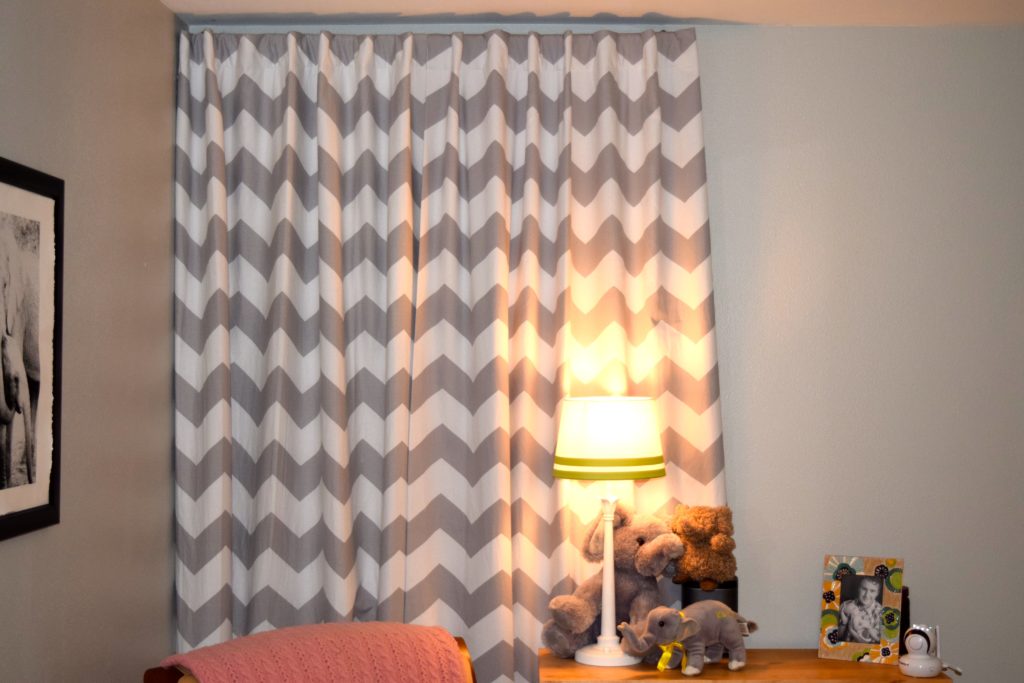
Figure out your parenting education plan
There’s a lot of parenting that just comes natural. Your instincts will kick in and you’ll know what to do. (Trust us, we’ve been there.) But, that doesn’t mean you shouldn’t put in some prep work getting educated—there are definitely things to know before the baby arrives. There are a few good ways to do this:
Read up. There are shelves and shelves of parenting books out there. Some are good. A select few are good and digestible. Our go-to? The American Academy of Pediatrics’ Caring for Baby and Young Child, Birth to Age 5 (available on Amazon here). It’s a beast, but it’s also organized into age-based chapters and backed by rock-solid information. We’ve also compiled our list of best books for expecting dads here. If you’re more into doing your reading online, here’s our roundup of blogs for expecting parents.
Take a class at your local hospital. Chances are a hospital in your area offers birthing and parenting classes. They’re usually pretty good, include infant CPR, and are quite affordable. If you’re reading this post-pandemic, they’re usually pretty accessible too.
Consider an online course for expecting parents. Ready to go back to school? Turns out, there are some really good options out there for online classes too. Many of these benefit from video lessons, which have a big leg up on reading about things in a book because parenting is, well, a pretty hands on sport, learning by watching can be helpful. Here’s our roundup of the best online classes for expecting parents, and we also offer our own online course, called Father’s Ed, which you can check out here.
Now that we’re educated and have a solid list of things to do before having a baby, let’s begin to answer that big question … yeah but how much is all this going to cost us?
How to prepare for a baby financially
We’re not going to sugarcoat it — kids are damn expensive. You’ve probably read some stat like, “It costs $300,000 to raise the a child to the age of 18.” Well, the most reliable figure we could find was $233,610, oddly published by the US Department of Agriculture.
But that kind of number isn’t particularly actionable and can be quite overwhelming. A better one might be the cost of raising a baby from birth to age one, along with a quick breakdown of the big expenses.
Well, Babycenter provides another oddly-specific number: $11,195.
But this number can vary wildly depending on where you come in on the big costs, which are:
Ongoing baby expenses
Daycare. Expect to pay $380 — upwards of $1,500 per month for daycare.
Diapers and wipes. $70 — $100 per month.
Formula & solid foods. If you’re formula-feeding, formula will run you $100+/month, solid foods, which start around 6 months, $50+/month.
Clothing, first aid, toys & books, and misc. $50 — $100+/month
One-time baby expenses
Baby gear—stroller, car seats, etc. $1,000 — $1,500+
Nursery and home setup—crib, baby monitor, bedding, etc. $1,000 — $1,500+
Nursing or bottle feeding supplies. $250 — $500+
So … yeah … babies are expensive. But, understanding the costs can help you prepare. Babycenter’s interactive calculator is quite helpful. We also wrote a detailed post on baby budgeting here.
Let’s talk about what of that gear you should buy before the baby comes though …
What to buy before your baby arrives
You definitely don’t need to buy everything before your baby comes, but consider stuff that falls into one of two categories:
Baby stuff you’ll want ready to go on day 1
Your baby’s crib or bassinet. They’ve gotta sleep somewhere, and somewhere safe. Buy a crib or bassinet that meets safety standards, or if you want to splurge for more sleep, check out the Snoo smart sleeper bassinet.
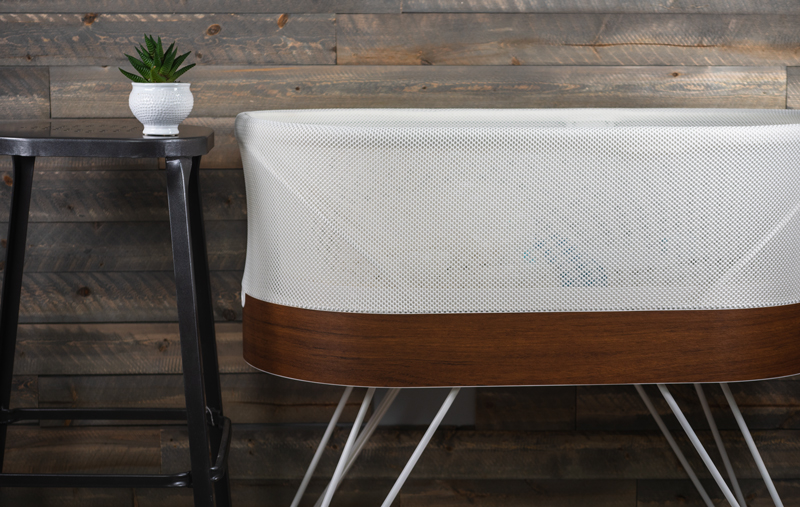
Car seat(s). Again, you’ve got to get your baby home from the hospital, and then transport them around. And we hate to break it to you, but if you have two cars, you’re probably going to need 2 car seats—moving them is a hassle, and can reduce safety if you’re hurriedly trying to install them before each ride.
A one-month supply of diapers, wipes, clothing, and supplies. You’re not going to want to be running out to the store frequently for baby stuff. Undoubtedly you will, but the more stock you have the better (though, since you don’t know how fast your baby will move to the next diaper size, you don’t want a 6-month supply of size 1 diapers). Quick clothing note: you don’t need fancy stuff. Babies grow fast, people will likely buy you clothes. That 5-pack of onesies from target will be just fine, your baby will still be super cute in them.
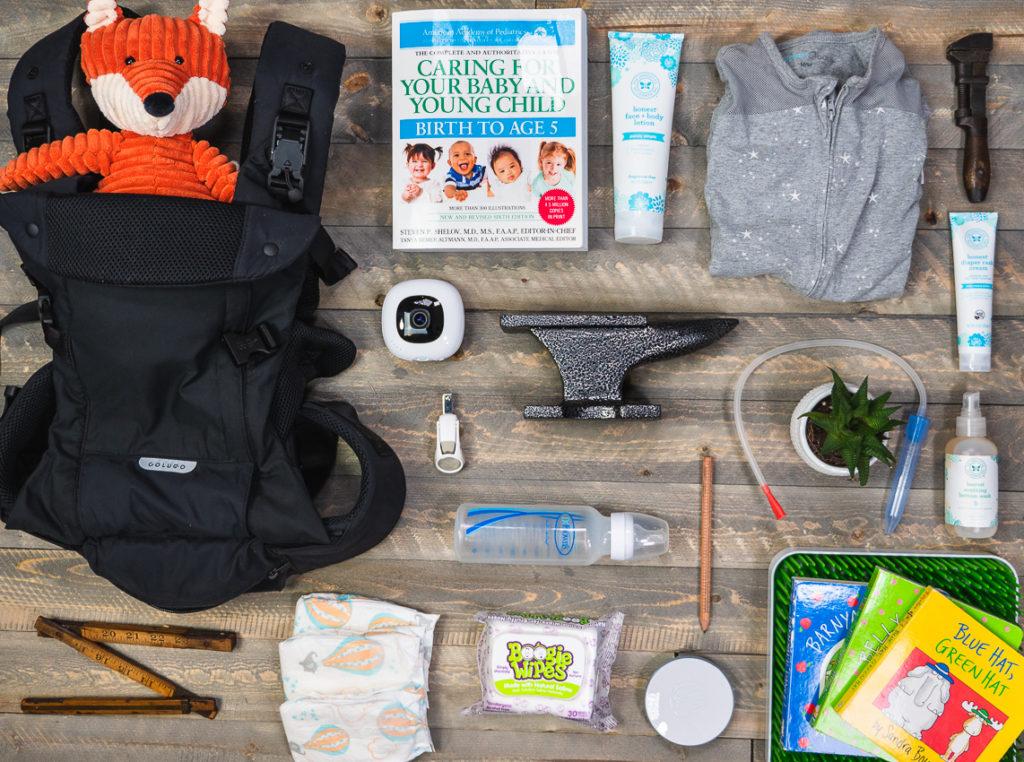
Gear you can practice with
You might not use this stuff on day one (in fact some of it you can’t without proper inserts), but having it ready and testing it out can be better than trying to learn it after your baby comes along.
A stroller. You will definitely want a stroller. Babies love stroller rides, you will love going for walks for fresh air and getting out of the house.
A baby monitor. Parents were just fine for millennia without baby monitors, but they are pretty darn handy. We go deep on baby monitors here, along with our picks for best baby monitor across several key categories.
Assorted other baby gear. Baby carriers, bath supplies, a nasal suction device—there’s lots of handy stuff out there. Poke around, get educated.
We break down our battle-tested list of baby and newborn essentials here.
Our comprehensive preparing for baby checklist
There is A LOT of stuff you need to do to prepare for a baby. You’ll probably forget something, and things will still be ok.
But, checklists are quite handy when it comes to remembering, and accomplishing, a long list of things.
That’s why we created our comprehensive preparing for a baby checklist as a downloadable, fridge-ready PDF. You can get it, 100% free, plus 3 other bonus checklists from Fathercraft when you join our email list (don’t worry, it’s awesome). Just enter your email here:
Fathercraft’s Baby Prep Checklist
Bonus: how to select a pediatrician—a video guide
In this video, we cover how to choose a pediatrician (and avoid creepy clown noses).
Want more? Get our free 3-day baby prep mini class when you drop your email here:
Receive our free baby prep mini class
Wrapping up & further information
There you have it—our guide to preparing for your new baby. Hope it’s been helpful! Now, go create that to do list before the baby arrives and start checking stuff of your list.
By the way, hi, we’re Fathercraft. We’re a company focused on creating high-quality, research-backed content for new and expecting dads—product reviews, online parenting courses, and more. Learn more here, and check out our YouTube channel here.
Please note: Fathercraft is reader supported, meaning, at no cost to you, we may earn a commission if you buy after clicking an affiliate link. Learn more. And, we are a participant in the Amazon Services LLC Associates Program, an affiliate advertising program designed to provide a means for us to earn fees by linking to Amazon.com and affiliated sites.

